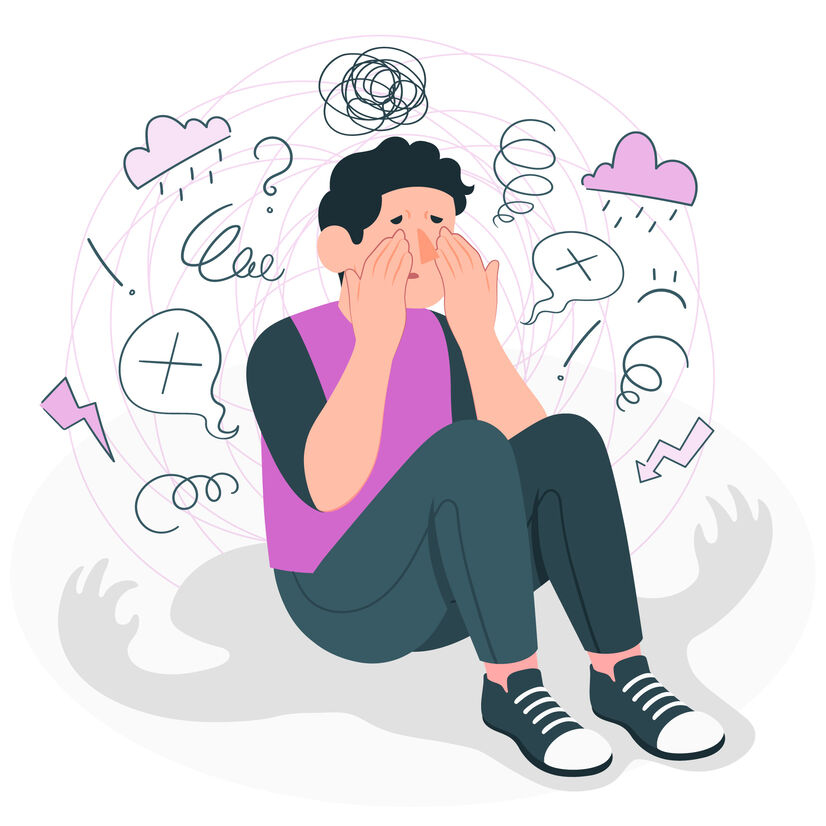How to overcome unhelpful thinking styles

Our thoughts have a profound impact on our emotions and behaviours. Sometimes, we might find ourselves trapped in negative thinking patterns that can lead to stress, anxiety, and even depression.
These unhelpful thinking styles can distort our perception of reality and hinder our ability to cope with life's challenges. In this blog post, we'll explore some common unhelpful thinking styles, how they might affect us, and provide practical tips and exercises to help you overcome them.
All-or-Nothing Thinking
This thinking style involves seeing things in black and white, with no shades of grey. If you don't perform perfectly, you might consider yourself a complete failure. To combat this, try to recognise that life is rarely “all or nothing.” Embrace the concept of progress over perfection and celebrate small successes along the way.
Tip: When you catch yourself thinking in absolutes, challenge your thoughts by considering alternative perspectives and finding some middle ground. Ask yourself: “What other possibilities could there be? What’s the most likely explanation?”
Overgeneralisation
Overgeneralisation occurs when you draw a broad conclusion based on a single event or piece of evidence. For example, if you have one bad experience, you might believe that you'll always fail in similar situations. To overcome this, try to treat each experience as unique and avoid making sweeping generalisations.
Exercise: Keep a thought diary and note down specific events that trigger overgeneralisation. Then, challenge these thoughts by listing counterexamples that disprove your generalisation.
Mental Filtering
Mental filtering involves focusing solely on the negative aspects of a situation while ignoring the positive ones. This can lead to a distorted view of reality and feelings of hopelessness. To break this pattern, actively seek out and acknowledge the positive aspects of your experiences.
Tip: Practice gratitude by regularly listing (or ever just thinking about) things you're thankful for, no matter how small they might seem.
Catastrophising
Catastrophising is when you anticipate the worst-case scenario, even when it's unlikely to happen. This can lead to intense anxiety and prevent you from taking necessary risks. To counteract this, try to assess the realistic probability and impact of your feared outcomes.
Exercise: When you find yourself catastrophising, ask yourself, “What's the worst-case scenario? How would I deal with it?” and "What's the most likely scenario?" This can help put things into perspective.
Emotional Reasoning
Emotional reasoning occurs when you base your view of reality on your emotions, rather than objective evidence. For example, feeling guilty might lead you to conclude that you've done something wrong, even if that's not the case. To overcome this, try to separate your emotions from the facts.
Tip: When you notice your emotions influencing your thoughts, take a step back and ask yourself, "What are the facts in this situation?" Aim to base your conclusions on evidence rather than feelings.
By recognising these unhelpful thinking styles and implementing the tips and exercises provided, you can start to challenge and reframe your negative thoughts. Remember, changing your thinking patterns takes time and practice.
Be patient with yourself and celebrate your progress along the way. If you find yourself struggling to overcome unhelpful thinking styles on your own, don't hesitate to reach out to our counselling team for support.
__
‘Most misunderstandings in the world could be avoided if people would simply take the time to ask, "What else could this mean?”’ ~ Shannon L. Alder




